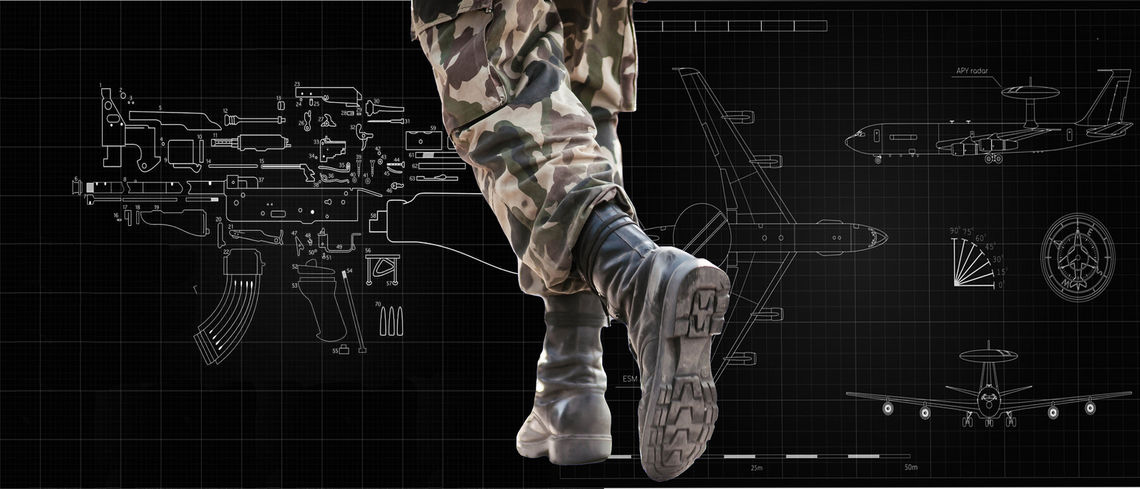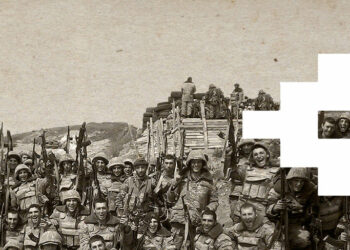
Far from being over, the ongoing war in Artsakh has already changed our lives. There has been no shortage of analysis on why the war started and what triggered it. However, there is limited discussion about when and how the war will end. This short piece is meant to initiate a discussion about the conditions that can pave a path toward ending the hostilities.
A war erupts because a set of circumstances go wrong simultaneously. A plethora of factors contribute to the start and expansion of the hostilities, ending a war is no less complex. Large-scale hostilities do not halt simply because of third-party ceasefire mediations – whether brokered by Russia, France or the U.S. – nor can the concerted calls from the UN, the OSCE and other international organizations easily stop the current war. There are multiple conditions which belligerents need to meet before deciding to cease hostilities.
A termination of hostilities, as claimed by Donald Wittman in his 1979 article, requires rational calculations of belligerents, which include a conviction that “for each participant the expected utility of continuing the war must be less than the expected utility of the settlement.” In the context of the Karabakh war, the expected benefits of settlement are still less than the expected benefits of continuing the war. In spite of large-scale casualties, human suffering and territorial advances, belligerents still have not met the conditions for a settlement. Azerbaijan doesn’t find it will be better off by ceasing the hostilities; that’s why it prefers fighting in spite of three agreements on a humanitarian truce. It’s participation in negotiations is an ingenuine display of commitment which aims at buying time to maximize its benefits from the continued war.
Next, we need to examine the Azerbaijani leadership’s expected benefits if it continues the war. For Azerbaijan, the military costs of war, which include destruction of resources and soldiers killed and wounded, are widely presented as bearable. The true data on costs and cost analysis, unlike in Armenia and Artsakh, are hidden from the people in Azerbaijan as the number of casualties, according to Aliyev, will be shared only after the active military phase is over. Thus, the true extent of casualties is hidden from the people in order for the Aliyev regime not to deviate from the expected utility of continuing the war. The subjective notion of winning, which in Azerbaijan’s case is territorial advancement in the southern part of Artsakh, is a utility which contributes to Azerbaijan’s desire to continue the war. Expected utility calculations will change as information about the military costs and outcome of military advances changes. Sharing the military costs could trigger new calculations, which the Aliyevs hide as deeply as possible. Failure to advance in the northern and eastern fronts of Artsakh made Aliyev change tactics and prolong the war by launching military incursions from the south.
Meanwhile, Azerbaijan’s increasing probability of winning does not automatically entail that the ceasing of hostilities is more likely. Artsakh’s territorial losses increase Azerbaijan’s probability of winning; thus, its expected benefits from continuing the war increases. Its minimal demands also increase and its strategic positions also transform as the war continues. As we have seen, Azerbaijan has hardened its positions on a number of topics. The only factors which may change Azerbaijan’s expected utility from continuing the war are the prospect of military defeats or a prolongation of the war. Armenia should also outline expected utility from continuing the war. Mere hoping for a ceasefire to work will bear no results, nor will it help to compel Azerbaijan to terminate the war. Armenia’s cry for a ceasefire only emboldens Azerbaijan. For the last 28 years, Azerbaijan was never genuinely interested in allowing diplomacy to work nor did it ever publicly offer any concessions. Why should Armenia rely solely on diplomacy now? Diplomacy for the Aliyev family has always served as a cloak to buy time and prepare for war. Dozens of meetings with the OSCE Minsk Group Co-Chairs and Armenian counterparts served only one purpose: to pretend that diplomacy needs to be given a chance.
“The more nations involved, the longer the war will be” is another assertion of Wittman which requires closer inspection. The Turkish military engagement in the conflict, with its military instructors, airforce, and Syrian mercenaries, has already prolonged the termination of the war. The Aliyev-Erdogan duo who initiated the war seem to enjoy its benefits but don’t pay the costs, which are suffered by soldiers and citizens. If necessary conditions for Azerbaijan and Armenia to end the war would emerge at one point, the necessary conditions for Turkey to end the hostilities may be different. Hence, the war will continue. At least four times over the past four weeks – on October 6, 10, 17, 25 – Turkey has openly spoiled the ceasefire initiatives. Turkey skillfully uses Aliyev’s domestic ambitions to build a new regional power balance. Since July, Turkey has militarily moved into Azerbaijan without showing any indications of leaving, if it plans to do so at all. Militarization of foreign policy has become Erdogan’s new credo and Aliyev’s long-time dream of attacking Artsakh just came in handy. Turkey and Azerbaijan are inflicting as much damage on Artsakh and Armenia as possible, thereby increasing the cost of the war for Artsakh. At the same time, Azerbaijan demonstrates that it initially entered into the war greatly overestimating its ability to wage a successful fight with minimal human and military costs. The same is also true for Armenia, as it was optimistic about easily countering the aggression and launching a counter-offensive.
Pashinyan’s maxim “Yes to painful compromise, no to capitulation” is another expected utility that makes Azerbaijan continue the war. Even minor counter-offensives could change the situation on the battlefield, eventually making Azerbaijan more risk-averse. Raising the awareness of the Azerbaijani people about the military costs and human casualties may also change the calculations. The autocratic regime of Aliyev, which rests on the three pillars of repression, co-optation, and legitimation, is gravely mistaken if it continues to believe that probable capitulation of Artsakh will eventually solve the conflict. As a matter of fact, Azerbaijan is trying to solve the 20th century problem with 21st century weapons by using middle-age tactics of demanding the total subjugation of the entire population of Artsakh. His methods of solving the conflict are obsolete and go against the established norms and regulations of international conflict settlement paradigms.
Aliyev is doomed to fail because he risks too much. His risk calculation and management toolbox is inherently defective. The initial military advantage of his army had clear drivers which the Defense Army of Artsakh has now fully identified, unearthed and contextualized. As the tide turns, Aliyev’s defiant stance remains unaltered. His resolve to avoid speaking of compromise when winning will cost him dearly. Even if he wins militarily, it will be his ultimate geopolitical defeat. He has opened a pandora’s box by failing to avoid the pitfalls of the past. His conviction of “we are on a righteous path” is deceptive and brings to mind an impetuous gambler. Even if the war starts well, it does not necessarily guarantee flawless progress, moreover, some wars are difficult to close. Aliyev launched the aggression on September 27 with one strategic goal while after three weeks he switched gears displaying maximalist claims. Aliyev’s maximalist stance is a road to nowhere.
also read
Fighting for Existence: Armenia Battles Two Repressive Regimes and Mercenaries
Given the geography, tactics and methods of the Azerbaijani offensive, the autocratic regime of Ilham Aliyev is aiming to forcibly occupy the territory of Artsakh through committing large-scale atrocities.
Read moreRemedial Rights in International Law and Their Relevance to Artsakh
In light of the existential threat, high probability of ethnic cleansing and the already imminent humanitarian crisis in Artsakh, the international community has an obligation to grant remedial recognition to Artsakh.
Read moreWar, Nothing But War: The Virtue of Brute Force and the Shortcomings of Diplomacy
The narrow geopolitical framework of the three-decade-old Karabakh conflict is now threatening to become a Eurasian nightmare: Turkey's involvement has sensationalized the war, Iran’s unease has reinforced the confusion, while Russia's perceived passiveness has created much regional anxiety.
Read moreThe UN, International Organizations and States Are Obligated to Provide Humanitarian Aid to Nagorno Karabakh: Here Is Why
The humanitarian emergency in the Republic of Nagorno Karabakh requires the engagement of humanitarian and donor organizations, without regard to its international recognition, its present or future status.
Read more




